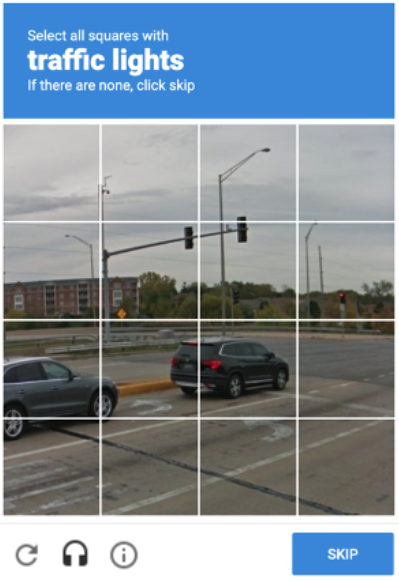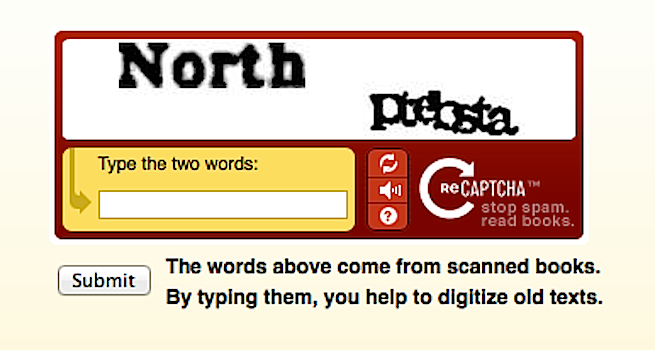

This can be triggered for a few reasons
- Spam Bots
- Infected computers
- Email worms
- DSL routers
- SEO ranking tools
You might want to scan and repair your computer if you get these captcha requests ever too often.
Captchas are designed to tell the difference between a human and a harmful program or a bot.
Captcha trains AI
Captchas weren’t just made to tell the difference between a human and a robot. They were made for a far greater purpose. Captcha’s train Google’s AI to be smarter, faster and definitely more reliable.
Earlier captchas were used to digitize books that were not decipherable by computers to translate into text.

Such text as shown in the image above, was not readable by Google’s bots. So they made thousands of people do it. In a day over 60 million people solve captchas. It takes about 10 seconds to solves them. That’s almost 19 human years.
With word captchas helping digitize books, don’t think that the image captchas are a waste of time.
Image captchas help Google with
- Accurate image search results
- Better google maps routes and images
- Search Google photo library for specific objects
This will help Google make better their driverless car technology. Do you know when CAPTCHA asks you to identify street signs? Essentially, you’re playing a very small role in piloting a driverless car somewhere, at some point in the future.
So basically every time you do this tedious task of sorting out images you are helping Google reach a step closer to driverless car technology, better image recognition, and an improved overall Google user experience.
About the Author
My name’s Semil Shah, and I pride myself on being the last digital marketer that you’ll ever need. Having worked internationally across agile and disruptive teams from San Fransico to London, I can help you take what you are doing in digital to a whole next level.



